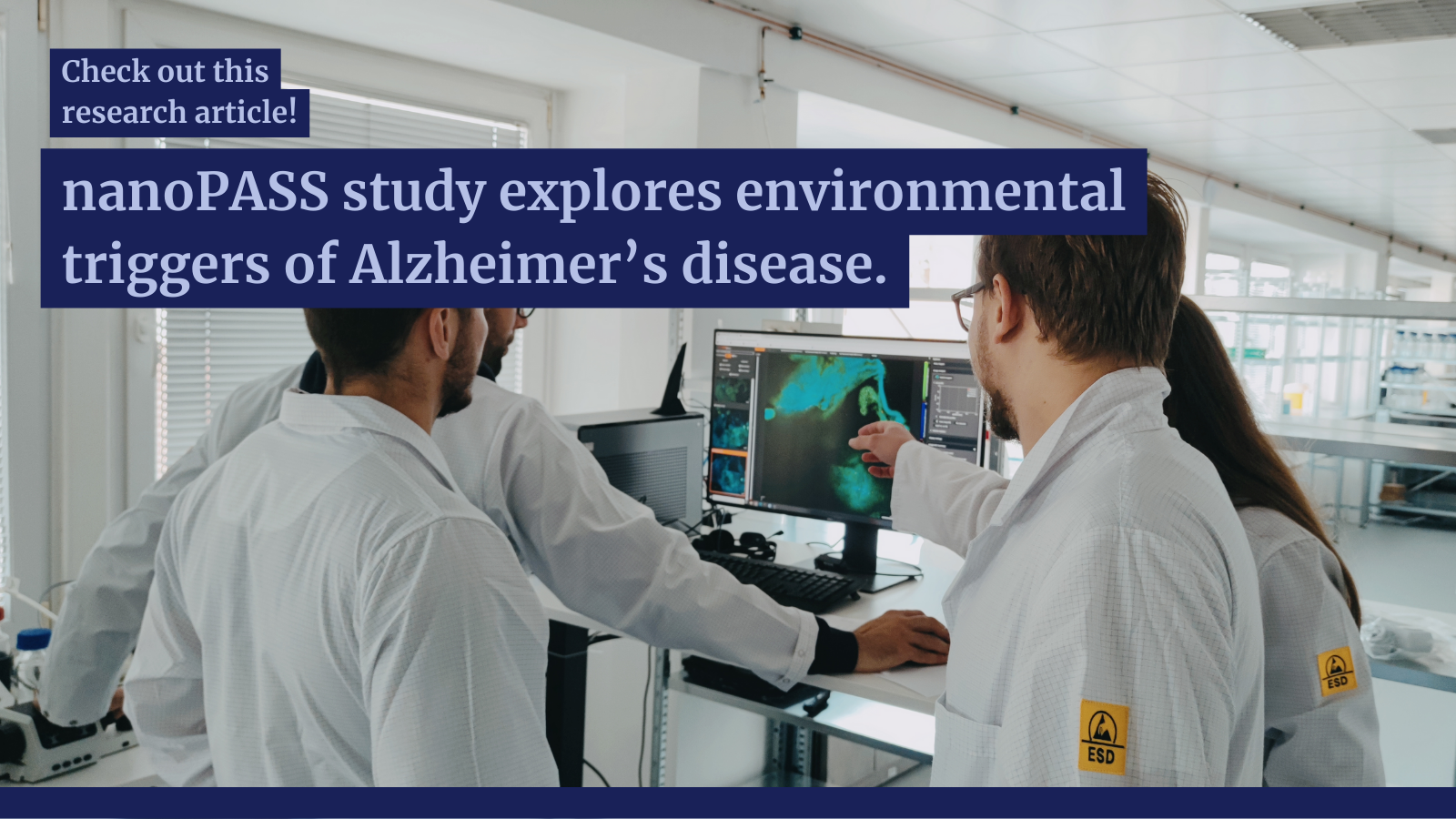nanoPASS Study Explores Environmental Triggers of Alzheimer’s Disease
24 June 2024We are thrilled to announce that several partners of the nanoPASS project have co-authored a significant research article titled "Particulate Matter Constituents Trigger the Formation of Extracellular Amyloid β and Tau-containing Plaques and Neurite Shortening In Vitro." This publication is now available in the journal Nanotoxicology.
Key Highlights
- Objective: To investigate how exposure to different particulate matter constituents affects neurodegeneration, particularly in the context of Alzheimer’s disease.
- Findings: The study reveals that exposure to certain nanoparticles, such as iron oxide and diesel exhaust particles, leads to the formation of extracellular amyloid β-containing plaques and neurite shortening in neuron-like cells. Conversely, engineered cerium oxide nanoparticles did not cause such neurodegenerative effects.
- Significance: This research provides a novel in vitro model for studying the environmental triggers of neurodegenerative diseases, highlighting the potential neurotoxic effects of air pollution.
Implications for nanoPASS
The findings of this study are crucial for the nanoPASS project's mission to advance the safe and sustainable use of nanomaterials. By understanding the potential neurotoxic effects of particulate matter, we can better assess the risks associated with nanomaterials and develop strategies to mitigate these risks.
About the Authors
This study is a collaborative effort involving nanoPASS partners from multiple prestigious institutions:
- Aleksandar Sebastijanović, Iztok Urbančič, and Tilen Koklič from the Laboratory of Biophysics, Jožef Stefan Institute, Slovenia
- Laura Maria Azzurra Camassa and Shan Zienolddiny-Narui from the National Institute of Occupational Health, Norway
- Vilhelm Malmborg and Joakim Pagels from Lund University, Sweden
- Slavko Kralj from the Jožef Stefan Institute, Slovenia
- Janez Štrancar from Infinite LLC, Slovenia
- Ulla Vogel from the National Research Centre for the Working Environment, Denmark
We invite the nanoPASS community and other stakeholders to read the full article and engage with these important findings. You can access the publication through Nanotoxicology.
